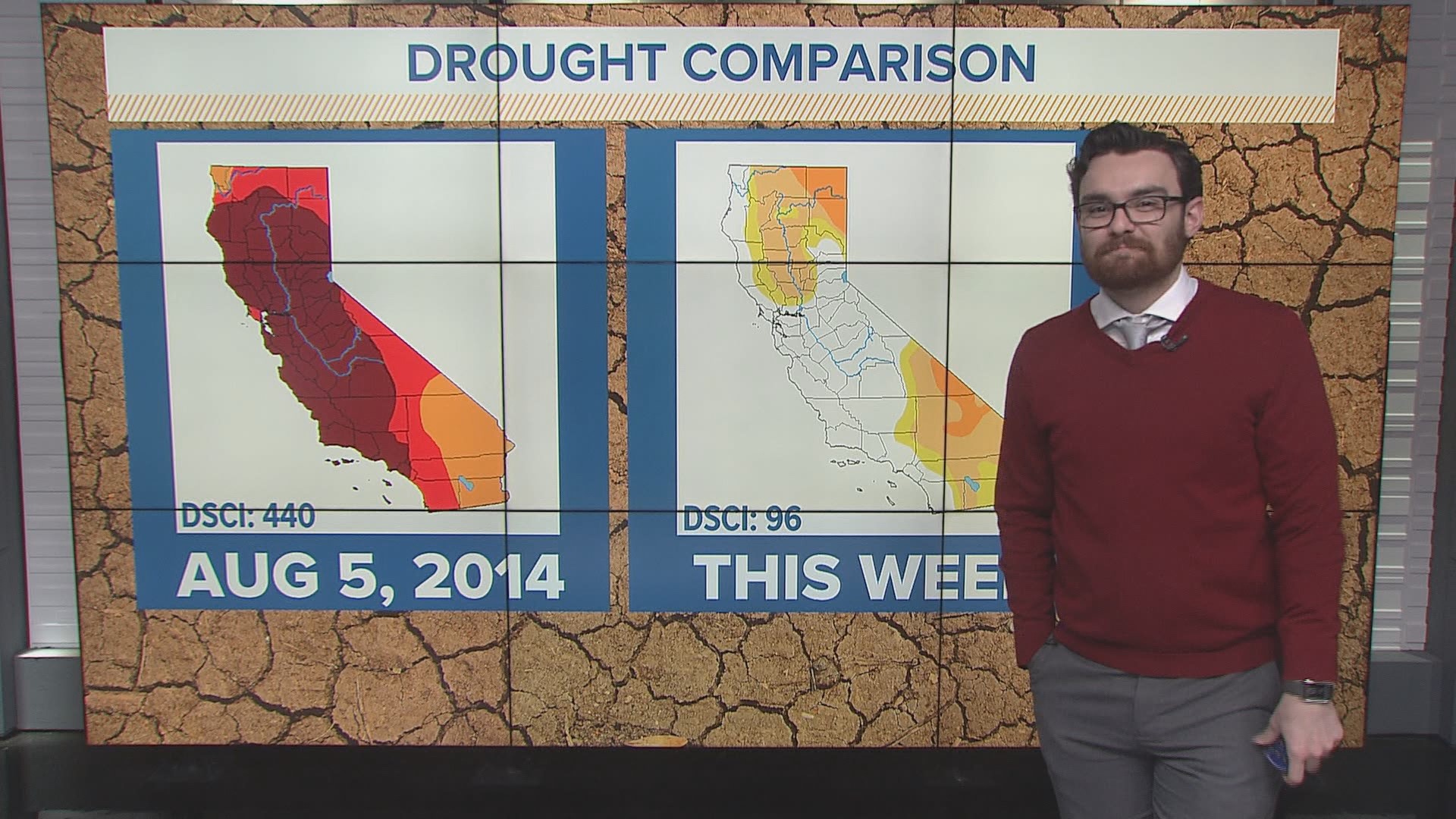SACRAMENTO, California — California has seen one of its wettest winters in history, leading some experts to declare the drought over. However, headlines like the closing of salmon fishing season in California remind us that even if the drought is over, its effects will linger.
California’s salmon populations have taken a hit from the drought. Out of an expected 196,000 Chinook Salmon expected to return to the Sacramento River to spawn, only 60,000 returned, according to the Department of Fish and Wildlife.
There is hope that the abundant rain and snowfall this winter will help boost native fish populations, such as salmon.
“I do expect to see positive impact from this year. Yeah, for sure,” said Rene Henery of Trout Unlimited.
California’s water infrastructure diverts water away from salmon habitats and during drought years, the lack of water does a number to populations. It takes really wet years like this one to boost their numbers.
"When we can spread floodwater, out on those floodplain habitats on the channel margin, we can inundate the bypasses, and create all of that floodplain habitat generally, it's a really good thing for all creatures that live in and around rivers," said Henery.
Measures like closing commercial and recreational salmon fishing and bumping up hatchery production will also assist in reinvigorating the species.
"We just closed commercial and recreational salmon fishing. And the commercial fishing interest called for that, which is a real testament to how dire things are," said Henery. "We're really in the the last gasps and a need to do something, need to take significant measures, and part of the reason that things are so bad is because we've had three bad years essentially in a row."
California been exceptionally wet this winter, but also very cold. Native fish like trout and salmon benefit greatly when waters are flowing fast and cold, which they will continue to do once the record snowpack begins to melt.
The next drought is always just around the corner in California, but this winter will no doubt give the fish a hand.
"You know, I'm hopeful that this is nature, giving the fish a hand yet again after a bunch of lousy years. But there's also some really important things that we can do in the course of the critical care for human life and safety to get the most benefit we can out of the water when it's around. And also to try to make the non-flood years a little less bad for fish, and I hope that we do those things too," said Henery.
WATCH ALSO:



















